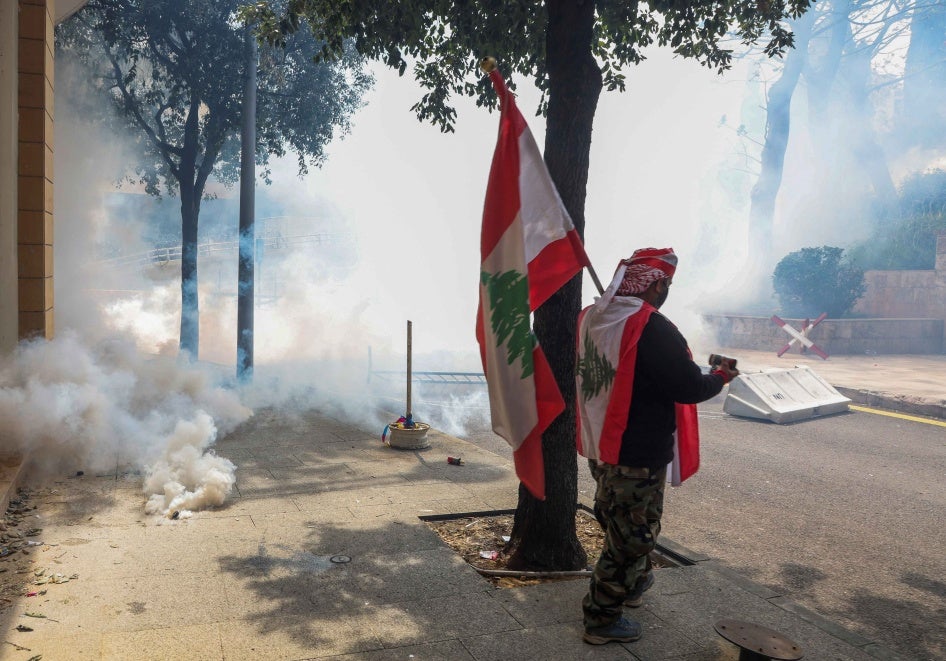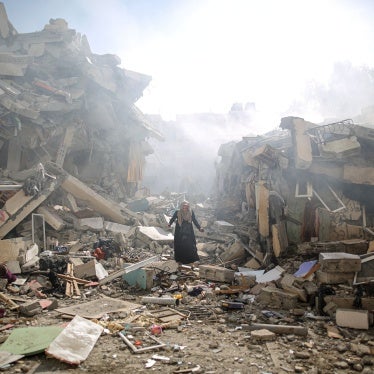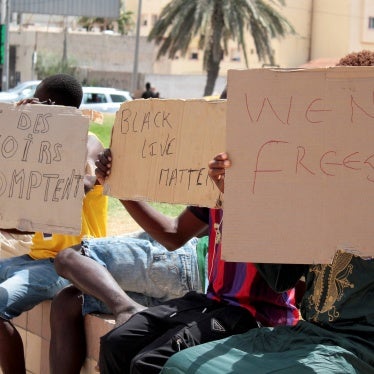(Beirut) – Lebanese authorities increasingly violated the rights of peaceful critics, LGBT people, and refugees during 2023, as the country grapples with an acute economic and financial crisis and escalating conflict between the Israeli military and Lebanese and Palestinian armed groups in southern Lebanon, Human Rights Watch said today in its World Report 2024.
As of November 23, Israeli attacks in Lebanon have reportedly killed at least 14 civilians, in addition to at least 85 Hezbollah fighters. Rocket strikes and other attacks into Israel by Hezbollah and Palestinian groups have reportedly killed at least three civilians and six soldiers.
Three and a half years after the catastrophic Beirut port explosion, in August 2020, no official has been held accountable, and implicated officials have successfully obstructed the domestic investigation since 2021. While the authorities have repeatedly refused to carry out crucial reforms needed to alleviate the consequences of the economic crisis, they have stepped up harassment of lawyers, activists, journalists, and even comedians in response to public criticisms of the government and public officials. In April and May, the Lebanese army summarily deported thousands of Syrians back to Syria.
“Lebanese authorities cannot hide their own responsibility for the country’s ongoing crises by repressing criticism and targeting marginalized groups,” said Ramzi Kaiss, Lebanon researcher at Human Rights Watch. “The only way out of Lebanon’s spiraling crises is accountability for officials who committed abuses or failed to uphold peoples’ rights.”
In the 740-page World Report 2024, its 34th edition, Human Rights Watch reviews human rights practices in more than 100 countries. In her introductory essay, Executive Director Tirana Hassan says that 2023 was a consequential year not only for human rights suppression and wartime atrocities but also for selective government outrage and transactional diplomacy that carried profound costs for the rights of those not in on the deal. But she says there were also signs of hope, showing the possibility of a different path, and calls on governments to consistently uphold their human rights obligations.
Most people in Lebanon were unable to secure their social and economic rights amid the ongoing economic crisis, with low-income households bearing the brunt of the crisis. By mismanaging the electricity sector for decades, Lebanese authorities massively failed to uphold the right to electricity, which Human Rights Watch considers essential to the right to an adequate standard of living.
The economic crisis also threatened education, leaving public-school students at risk of losing another year of school due to a budget shortfall and years of mismanagement by the Education Ministry.
Prison conditions have dangerously deteriorated during the economic crisis, with a majority of prisoners, some held in pretrial detention, subjected to unprecedented overcrowding, subpar health care, disruptions in the food supply, and a drop in food quality.
LGBT people face systemic discrimination in Lebanon, including a formal ban on LGBT gatherings since 2022. In 2023, a minister and member of parliament introduced separate bills that would explicitly criminalize same-sex relations between consenting adults and punish anyone who “promotes homosexuality,” and the authorities failed to take steps to protect LGBT people from vigilante attacks or to halt incitement to violence against them.
Lebanese authorities continued to pursue policies and deploy tactics to coerce Syrian refugees to return to Syria, including arbitrary arrests and summary deportations of thousands of Syrians, including unaccompanied children, between April and May.









